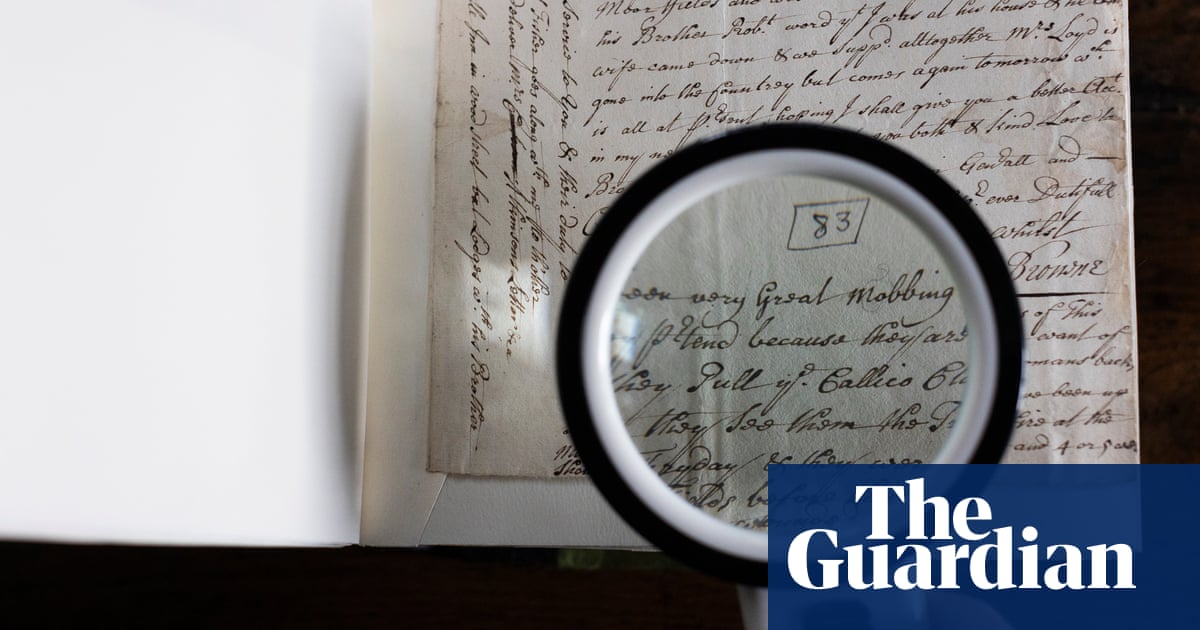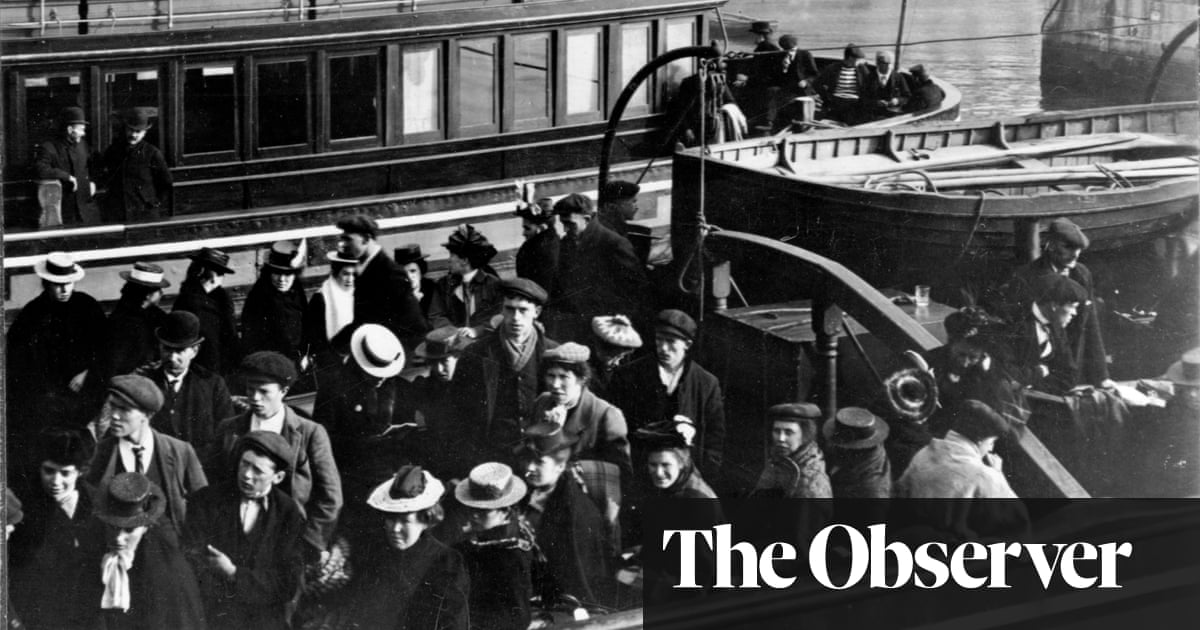
When Ben Browne set off on horseback from his small village in the north of England for the bright lights of London in 1719, his concerns were not so different from those of today’s young people. Mainly: please send money, everything is so expensive.
About 65 letters sent by Browne to his father back in Troutbeck, in the historic county of Westmorland, now part of Cumbria, have survived the intervening 300 years. On Tuesday they go on display at Townend, the Browne family home that is now cared for by the National Trust.
The letters are full of vivid descriptions of Browne’s new life in London, where he trained as a clerk to a lawyer, as well as his need for funds. Early on, he encountered social unrest in the form of violent protests by Spitalfields silk weavers against imports of calico from India. It was, he wrote home, a “very great mobbing by the weavers of this town … they are starved for want of trade”.
As time went on, his letters frequently requested money to help pay his rent, and to buy stockings, breeches, wigs and other items necessary to his new life. He hoped his parents would not think him extravagant, but “… my Cloaths which [I] have now are but mean in Comparison [with] what they wear here”.
Browne described working long hours, from 8am to 8pm, copying legal documents, and was annoyed to discover his father had apprenticed him to his employer for five years. “I have Lost the prime of my Youth,” he complained.
Nevertheless – and despite telling his father how short of cash he was – Browne maintained a lively social life, meeting friends, and eating and drinking around Fleet Street, close to the Inns of Court. He also found the resources to indulge his passion for buying books.
A number of surviving volumes in the library at Townend have purchase dates corresponding to the years Browne was in London and were annotated in his hand. They included romances, fictional works and Shakespeare plays.
He also had to field requests from family and neighbours back in Troutbeck to source various items only available in the city. He sent several snuff boxes to his parents, and in one letter Browne listed the requests he had fulfilled including a wig trunk, sealing wax and a silver thimble, a “Cap for Parson Sawrey & two necklaces for him”, “Linnen for a gown and cape for Mrs Birkett Merrers” and “Chocolate & Coffee for my mother”.
In one letter, Browne announced he had married the maid of his employer, Mary Branch from St Albans, having courted her in secret. He begged his father for his blessing and forgiveness, which was duly given. Browne wrote that he “shall ever acknowledge the many and endearing kindnesses and affectionate advices by me rec’d from so indulgent and affectionate father and mother”.
Emma Wright, the collections and house manager at Townend, said: “These letters are so relatable, and they show nothing has really changed. Like the emails or text messages they may receive today, many parents with a child going off into the world will appreciate how [Browne’s father] must have felt getting news of [him] and requests for help, while any young person who has arrived in a big city to study or work will recognise the situations in which young Ben finds himself.”
Browne spent 16 years in London before returning to the family farmhouse in the Lake District. His father, also named Ben Browne, kept dozens of the letters young Ben wrote home, but few written by the older man to his son have survived.












